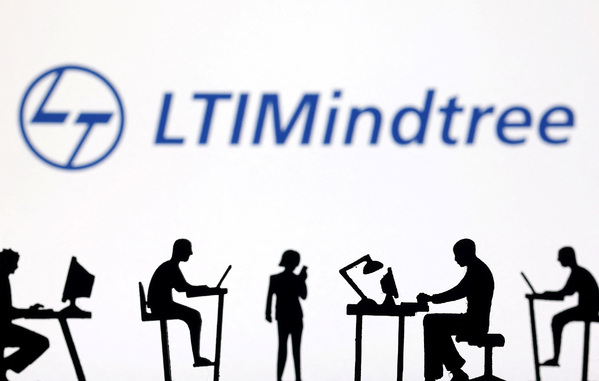Europe’s dilemma: regulating AI
Olaf van Haperen at Eversheds Sutherland describes the careful balance between regulation and innovation

The world’s first AI Act has set a global benchmark for AI regulation – but is this focus on regulation stifling the continent’s ability to innovate and thrive in AI?
As artificial intelligence innovation and adoption accelerate at breakneck speeds, the continent faces a defining challenge - how to unleash the transformative potential of AI while safeguarding citizens, economies, and democratic values.
Europe is no stranger to this dilemma. Mario Draghi’s recent EU competitiveness report highlights the challenges and opportunities well: “with the world on the cusp of an AI revolution, Europe cannot afford to remain anchored in the “middle technologies and industries of the previous century.” He also notes the importance of unlocking Europe’s innovative potential – with the aim to match the US. But can matching the US’ level of innovation be delivered through Europe’s desire to regulate?
The answer lies in striking a delicate balance between bold innovation and robust regulation - a balance that could determine Europe’s future on the global tech stage.
Opportunity and risk: a delicate balance
The EU AI Act reflects Europe’s longstanding tendency to place ethics and human rights at the centre of policymaking. But to stay competitive in a rapidly evolving landscape, regulation doesn’t just require restriction, policies can also focus on rewards and incentives. This could include things like targeted investment and streamlined pathways to scale skills programmes that equip workers for the AI era. Principles can set the direction, but incentives will power the journey.
The AI Act itself, when paired with practical support mechanisms such as regulatory sandboxes, certification schemes, and knowledge centres, can create a safe environment for experimentation and growth.
Looking ahead, it’s not just the AI Act that is on the agenda. The AI Liability Directive will provide clearer rules for responsibility, reducing uncertainty for innovators, while the Data Act will open up new opportunities for data-driven business models. Europe faces a choice to remain primarily a rule-setter, or to pair its regulatory leadership with measures that actively stimulate innovation and scale. The consequences of getting this balance wrong are clear: nearly a third of European unicorns founded between 2008 and 2021 have since relocated abroad, most often to the US, in search of a more dynamic environment for scaling. It’s essential that lessons from the past are learned in striking the right balance for this evolving industry.
Many promising research initiatives have also relocated abroad, leaving Europe reliant on imported technologies rather than leading the field. The opposite risk is equally real where innovation moves faster than regulation can keep up. The rapid rise of social media platforms in the 2010s shows how under-regulation can leave policymakers scrambling to play catch up. Without early, thoughtful frameworks, governments spent years reacting to issues of data privacy, content moderation, and competition that might have been addressed more effectively if regulation had set guidelines out early. We’ve already seen in the US a huge number of lawsuits where litigation looks set to fill the legislative gap.
The business code for success
Well-designed regulation can offer clarity and confidence, providing a trusted framework for growth. Businesses have a crucial role to play here: by engaging early with policymakers, participating in pilot programmes, and leveraging available incentives, they can help shape future frameworks to their advantage. By viewing regulation as a partnership rather than a hurdle, organisations can gain first-mover advantage, influence emerging standards, and build lasting trust with customers and stakeholders.
For businesses, the task is to adapt to a regulatory environment that is still taking shape while preparing for the opportunities that AI presents. Navigating this landscape alone can be complex, which is why partnering with experienced legal advisers is becoming essential. Law firms can help organisations interpret evolving legislation, anticipate forthcoming obligations, and design compliance strategies that support innovation rather than stifle it. Strategic legal guidance can also help companies make the most of the transitional compliance period by testing modular commitments to the GPAI Code, identifying potential risks early, and ensuring they are well positioned when enforcement begins.
Finally, actively involving employees in this process and maintaining transparency around AI deployment strengthens trust, eases transitions, and fosters a culture of responsible innovation. By coupling strong internal governance with trusted legal expertise, businesses can confidently navigate Europe’s AI landscape and turn compliance into a competitive advantage.
Turning values into a competitive advantage
Europe’s strength lies in principled leadership and now is its moment to prove that those principles can drive real progress. By pairing its trusted governance with bold incentives, strategic legal partnerships and a supportive regulatory framework, Europe can turn regulation into a springboard for innovation. The two are not at odds with each other and Europe now stands in a position to show the world that responsible AI can also be world leading. If Europe actively backs its innovators, it can shape a distinctive regulatory model that others can follow.
Olaf van Haperen is Senior Technology Partner and Lead of European TMT at Eversheds Sutherland
Main image courtesy of iStockPhoto.com and Sakorn Sukkasemsakorn

Business Reporter Team
Most Viewed
Winston House, 3rd Floor, Units 306-309, 2-4 Dollis Park, London, N3 1HF
23-29 Hendon Lane, London, N3 1RT
020 8349 4363
© 2025, Lyonsdown Limited. Business Reporter® is a registered trademark of Lyonsdown Ltd. VAT registration number: 830519543





